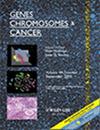Schwann Cells Deficient in Neurofibromin Lack Sensitivity to Their Biomechanical Microenvironment
Abstract
Background and Aims
Plexiform neurofibromas (PNFs) are benign tumors of the peripheral nervous system that affect approximately 30% of people with neurofibromatosis type 1 (NF1). Schwann cells (SCs), the tumor progenitor cells, respond to and use biomechanical signals like tissue stiffness and mechanical loads in their maintenance and repair functions in healthy tissues. PNFs are described as having altered biomechanics, and we hypothesize this plays a role in PNF development. As a first step in studying the role that altered biomechanics may play in the development of PNFs, we aimed to determine how PNF SCs alter in their response to various biomechanical signals as compared to healthy SCs.
Methods
We examined the behavior of healthy and PNF SCs in three different tissue-mimicking biomechanical models. First, we examined their spreading behavior on extracellular matrix (ECM) protein-coated polyacrylamide hydrogels of varying stiffness in the healthy and pathological range. Second, we investigated their collective migration with respect to substrate stiffness and ECM protein-coating. Finally, we generated multicellular spheroid tissue models using healthy and PNF SCs and measured their mechanical properties as a function of spheroid size.
Results
We found that PNF SCs are differently sensitive to substrate stiffness in a physiological range compared to healthy SCs, lack sensitivity to ECM protein coating when collectively migrating, and lack sensitivity to environmental deficiencies in oxygen and nutrient supplies when in spheroid culture.
Interpretation
We propose that PNF SC altered biomechanics likely play a role in tumor initiation and progression, and that further biomechanical-based investigations of NF1 tumor growth are needed.

 求助内容:
求助内容: 应助结果提醒方式:
应助结果提醒方式:


